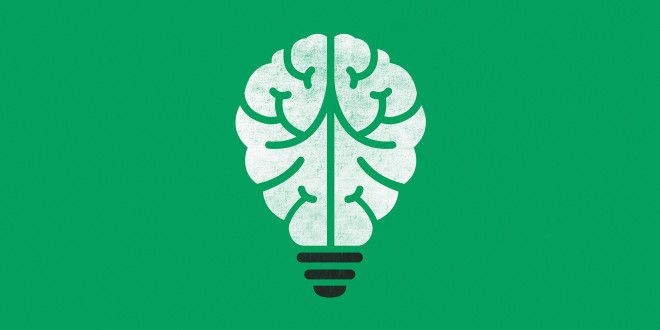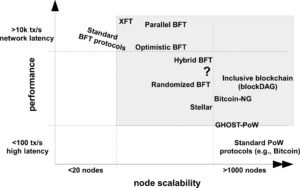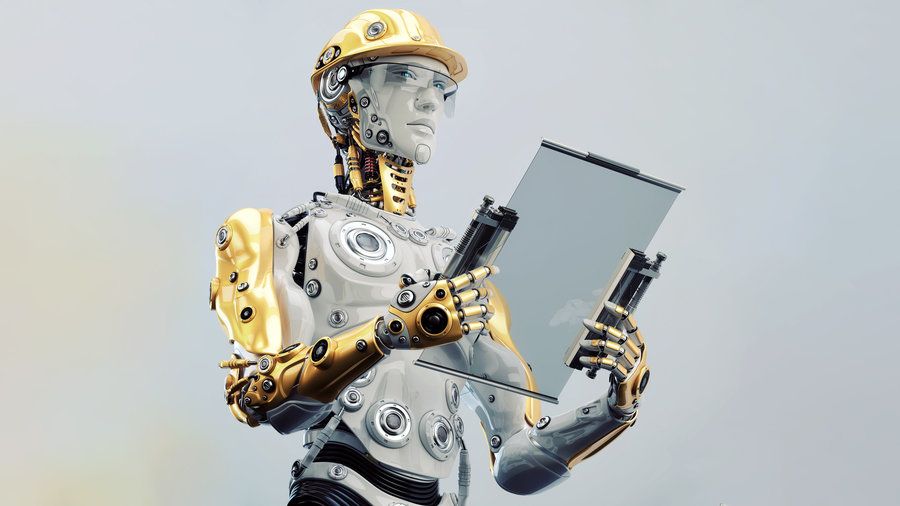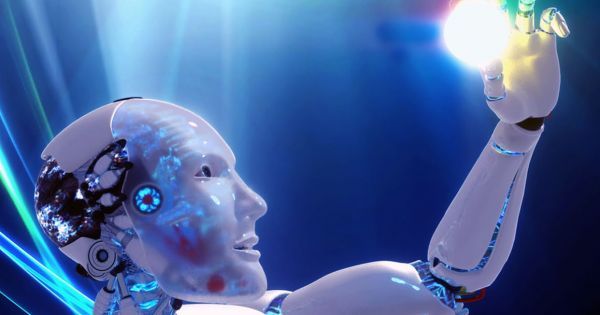The world’s top AI researchers met to consider the threats posed by their research. The global economy could be the first casualty.



The French Polynesian government, earlier this year, officially signed an agreement with The Seasteading Institute to cooperate on creating legal framework to allow for the development of The Floating Island Project. The legislation will give the Floating Island Project it’s own “special governing framework” creating an “innovative special economic zone”.

Research can seem bland to us laypersons. But, Marko Vukolić shares many of my research interests and he exceeds my academic credentials (with just enough overlap for me to understand his work). So, in my opinion, his writing is anything but bland…
Vukolić started his career as a post-doc intern at IBM in Zurich Switzerland. After a teaching stint as assistant professor at Eurecom and visiting professor at ETH Zurich, he rejoined the IBM research staff in both cloud computing infrastructure and the Blockchain Group.*
As a researcher and academic, Vukolić is a rising star in consensus-based mechanisms and low latency replicated state machines. At Institut Mines-Télécom in Paris, he wrote papers and participated in research projects on fault tolerance, scalability, cloud computing and distributed trust mechanisms.
Now, at IBM Zurich, Vukolić has published a superior analysis addressing the first and biggest elephant in the Bitcoin ballroom, Each elephant addresses an urgent need:
 Regarding the first elephant, scalability, Bitcoin urgently needs to grow its Blockchain dynamics into something that is living and manageable. To that end, Vukolić refers to a transaction bookkeeping mechanism that works as a “fabric”. That is, it does not require every miner to access the history-of-the-world and append each transaction onto the same chain in serial fashion. Rather than growing an ever bigger blockchain—with ever bigger computers—we need a more 3D approach that uses relational databases in a multi-threaded, transactional environment, while still preserving the distributed, p2p trust mechanisms of the original blockchain.
Regarding the first elephant, scalability, Bitcoin urgently needs to grow its Blockchain dynamics into something that is living and manageable. To that end, Vukolić refers to a transaction bookkeeping mechanism that works as a “fabric”. That is, it does not require every miner to access the history-of-the-world and append each transaction onto the same chain in serial fashion. Rather than growing an ever bigger blockchain—with ever bigger computers—we need a more 3D approach that uses relational databases in a multi-threaded, transactional environment, while still preserving the distributed, p2p trust mechanisms of the original blockchain.
While clearly technical, it is a good read, even for lay enthusiasts. It directly relates to one of the elephants in the room.
I have pasted Marko’s Abstract below. The full paper is 10½ pages (14 with references).
Bitcoin cryptocurrency demonstrated the utility of global consensus across thousands of nodes, changing the world of digital transactions forever. In the early days of Bitcoin, the performance of its probabilistic proof-of-work (PoW) based consensus fabric, also known as blockchain, was not a major issue. Bitcoin became a success story, despite its consensus latencies on the order of an hour and the theoretical peak throughput of only up to 7 transactions per second.
The situation today is radically different and the poor performance scalability of early PoW blockchains no longer makes sense. Specifically, the trend of modern cryptocurrency platforms, such as Ethereum, is to support execution of arbitrary distributed applications on blockchain fabric, needing much better performance. This approach, however, makes cryptocurrency platforms step away from their original purpose and enter the domain of database-replication protocols, notably, the classical state-machine replication, and in particular its Byzantine fault-tolerant (BFT) variants.
In this paper, we contrast PoW-based blockchains to those based on BFT state machine replication, focusing on their scalability limits. We also discuss recent proposals to overcoming these scalability limits and outline key outstanding open problems in the quest for the “ultimate” blockchain fabric(s). Keywords: Bitcoin, blockchain, Byzantine fault tolerance, consensus, proof-of-work, scalability, state machine replication
* Like Marko, Blockchains, Cloud computing, and Privacy are, also my primary reserach interests, (GMTA!). But, I cede the rigorous, academic credentials to Marko.
† BFT = Byzantine Fault Tolerant consensus protocols
Related—and recently in the news:
Raymond co-chairs CRYPSA and The Bitcoin Event. A columnist & board member at Lifeboat Foundation
he edits AWildDuck. He will deliver the keynote address at Digital Currency Summit in Johannesburg.

After labor, not all of us will want to explore inner consciousness. Abundant leisure will not turn everyone into the Buddha. Many of our tastes are in the gutter, and I have no objection to leaving them there. I’m not a fan of shopping per se, but buying stuff is deeply satisfying and motivating for many people. Is it possible to rethink the pleasure of conspicuous consumption in a way that decouples it from the competitive labor economy? The post-work world I’m imagining will have little surplus money for unnecessary shopping, even if robots and computers can dramatically lower the overhead of such production. So, a non-consummatory form of shopping will have to be cultivated.
Some people marshal all their evolved predatory skills to hunt down the perfect sweater, shoes, or watch. Could we redesign shopping as a system of “catch-and-release,” so that, like sport fishing, it’s the adventure and not the prize that becomes central? Maybe we will hunt for luxury items, but then instead of keeping them, simply photograph ourselves wearing the items (like a fisherman holding a giant pike). It’s an unlikely adjustment, I’ll grant you, but I never thought catch-and-release fishing would be fun until I did it, and it was. The way some people already buy and return items suggests to me that catch-and-release shopping is not impossible.

There are at least four ways to acquire Bitcoin and three ways to store it…
Acquire Bitcoin: You can trade Bitcoin in person, accept it as a vendor, mine it, or buy on an exchange.
Store Bitcoin: You can keep your Bitcoin in an online/cloud service (typically, one that is connected to your exchange account), keep it on your own PC or phone, or even print it out and store it on a piece of paper. Like a physical coin, the piece of paper has value. It can be placed in your lock box or under your mattress.
Let’s look at the market for Bitcoin Wallets (all of these are free), and then we shall talk about Bitcoin exchange services. This includes my personal recommendation for the typical consumer or coin enthusiast…
You can start your search for a wallet on this page at Bitcoin.org. Use the drop down tabs to refine your search by platform: Mobile, Desktop, Hardware gadget or Web. Don’t overlook the web option. For many users, the wallet (and VAULT) included with an online exchange account is all you need.
Each wallet platform is further distinguished by operating system. For example, you can find a smartphone wallet for Android, Apple, Windows Mobile or Blackberry. Some popular apps are listed under more than one OS or platform.
When you click on any of the app logos, you will see a checklist of five key traits, according to reviewers at the Bitcoin Foundation:
These are not necessarily critical traits/features. It depends on your needs and preferences. For example, everyone wants good privacy and security. But not everyone wants to control their private keys. That places the risk of loss, backup and/or the burden of inheritance issues on you, rather than a standardized recovery process. The feature comparison simply helps you to begin your own comparison and evaluation.
For Android users, my personal recommendation is Bitcoin Wallet by Andreas Schildbach (the logo is a tilted orange ‘B’). It is simple, secure, well maintained and very popular. (iPhone users: See my my suggestion in the recommendations, below).
Despite the simplicity and low cost of spending or sending Bitcoin between individuals and vendors, getting your first Bitcoin can be confusing, complex and even risky. For this reason, I suggest that Newbies open an account at a very established and trustworthy exchange.
In the near future, this will include most big banks. But for now, the safest and most reputable exchange is Coinbase in San Francisco. They are also the one with the highest level of regulatory compliance.  Bitstamp of Slovenia and Great Britain is a close second. In my opinion, using either of these organizations as a currency exchange or a secure place to park your digital currency is a safe bet.
Bitstamp of Slovenia and Great Britain is a close second. In my opinion, using either of these organizations as a currency exchange or a secure place to park your digital currency is a safe bet.
Both of these exchanges include a cloud wallet service that—when used properly—is safe and secure. But, because Bitcoin is still in its infancy, you will need to learn about sweeping funds into a ‘vault’ (to better protect against hacking) and you should also learn about portable backups and multi-sig (to protect your assets, in the event of forgetfulness, death or incapacitation).
With either type of wallet—device storage or online with an exchange—I recommend that you install and play with a portable wallet on your phone, just to get the hang of a few basic functions: Display wallet address for incoming money, Send money, Request money (i.e. send an invoice), and Pay with the QR-camera feature. All wallets serve these basic and critical needs.
Recommendations:
Related Reading:
Philip Raymond co-chairs CRYPSA, produces The Bitcoin Event and is a board member at
Lifeboat. He will deliver the Keynote Address at Digital Currency Summit in Johannesburg.

What do the Oral-B CrossAction toothbrush, about a thousand musical compositions and even a few recent food recipes all have in common?
They were invented by computers, but you won’t find a nonhuman credited with any of these creations on U.S. patents. One patent attorney would like to see that changed.
Ryan Abbott is petitioning to address what he sees as more than a quirk in current laws but a fundamental flaw in policy that could have wide-ranging implications in areas of patent jurisprudence, economics and beyond if his proposals are adopted.

In Brief The time for machines to take over most of humanity’s work is rapidly approaching. The world is woefully unprepared to deal with the implications that automation will have over the coming decades. Universal basic income is just beginning to be discussed, and automation has the potential to displace much of the world’s workforce. Many decisions have to be made, and quickly, if we hope to keep pace with innovation.
On December 2nd, 1942, a team of scientists led by Enrico Fermi came back from lunch and watched as humanity created the first self-sustaining nuclear reaction inside a pile of bricks and wood underneath a football field at the University of Chicago. Known to history as Chicago Pile-1, it was celebrated in silence with a single bottle of Chianti, for those who were there understood exactly what it meant for humankind, without any need for words.
Now, something new has occurred that, again, quietly changed the world forever. Like a whispered word in a foreign language, it was quiet in that you may have heard it, but its full meaning may not have been comprehended. However, it’s vital we understand this new language, and what it’s increasingly telling us, for the ramifications are set to alter everything we take for granted about the way our globalized economy functions, and the ways in which we as humans exist within it.

If you’re not paying attention to what’s going on in energy, you should. We’ve seen this movie before. Spoiler alert: There’s massive economic opportunity ahead. How massive? Imagine standing in 1992, knowing that Google, Akamai, Netflix, Facebook, Amazon, eBay, BuzzFeed and Uber lay ahead.
This time it’s the “enernet,” not the internet, that will transform our lives. The story is the same, though the players have changed.
Here’s the tee up. Across the country, incumbent network providers operate highly centralized networks in their respective cities. Then, scrappy local outfits start serving the market with innovative, distributed technology. These startups create competition, and a new network emerges atop the legacy network.

The high tech sector is often the backbone of a healthy economy, and this sector of the economy is growing rapidly in many parts of the world. While growth of the technology sector is likely to continue in the developed world, high tech growth is often especially rapid in the developing world. Here are some countries where high tech sector growth is taking place at a particularly rapid pace:
China: China is experiencing rapid economic growth in general, and this includes the country’s high tech sector. While the high tech sector of China has been growing for some time, it may grow at an even faster rate in the future. China’s economy is thought to be making a transition from an industrial to a post industrial nation. This transition often leads to growth in the high tech sector.
Since people in China are spending more on merchandise in general, more people in China are purchasing high tech gadgets. You can see this trend from the increase in internet usage that has been happening throughout China. It is estimated that there is a new internet user in China every 1.6 seconds. Currently, nearly 600 million people in China already use the internet. This is nearly double the population of the United States, and this figure is expected to continue rising rapidly!
